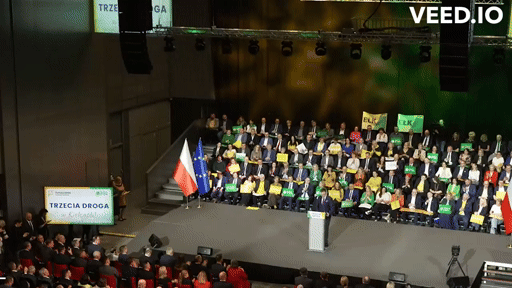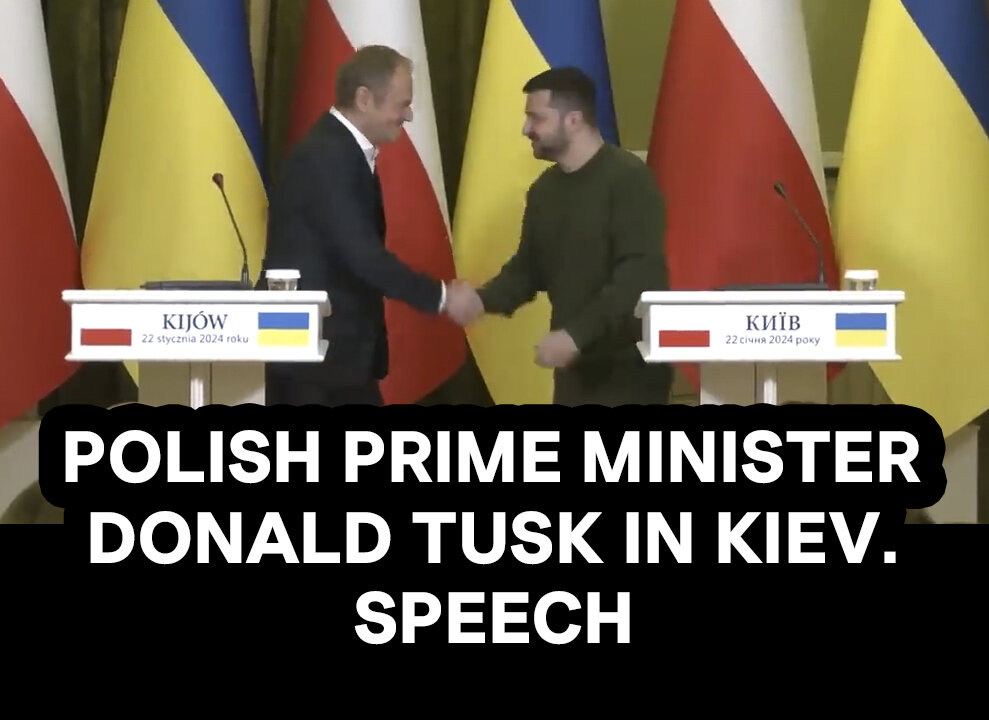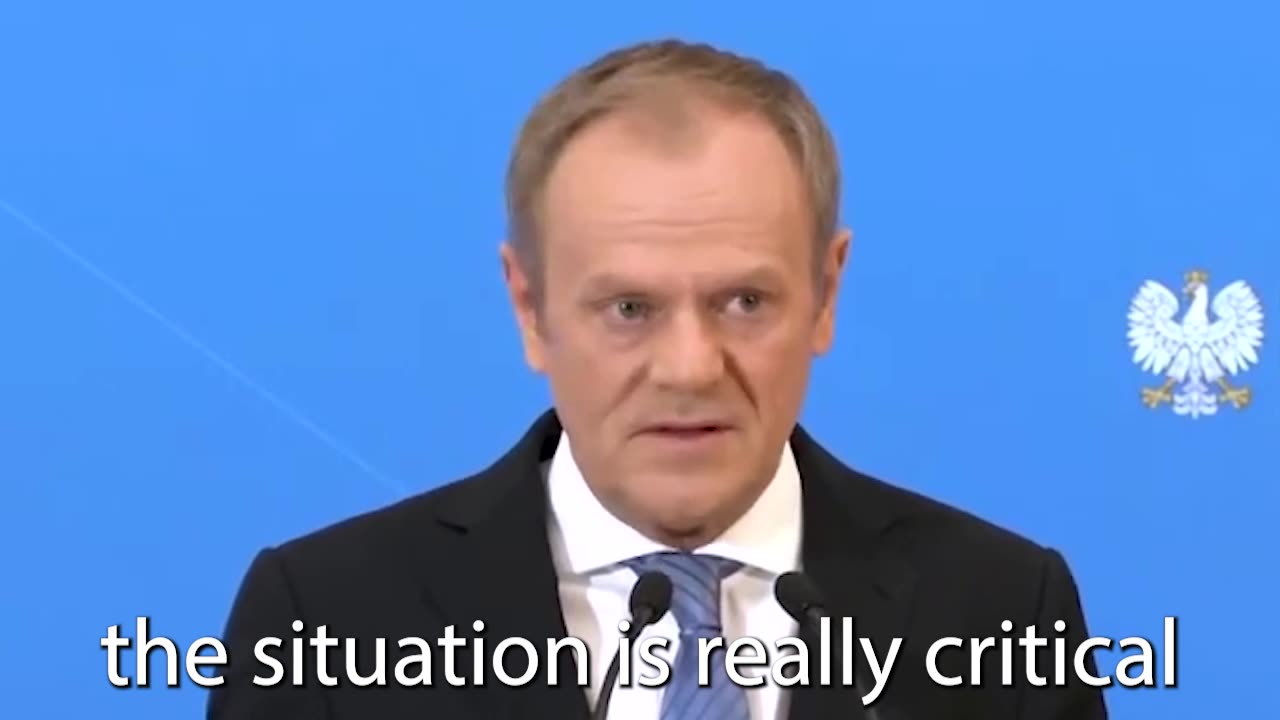These days, a documentary is airing on RT about the historical relations and conflicts between Poland and Russia.
I have now watched the two videos about Russia-Polish history, and there is a third, though it is for some reason still without English subtitles. In practical terms, I tried to find a solution and ended up playing it a 0.75 of the normal speed to catch the Russian better. (The video settings allows for 0.5, but with the Google browser, extension "YouTube Playback Speed Control", it worked.)
The link and description the third video:
Russia vs Poland. 1000-Year Duel. Part 3
2024, Europe, 18+
Authors: Tatiana Borsh
'But for the prodigious exertions and sacrifices of Russia, Poland was doomed to utter destruction at the hands of the Germans. Not only Poland as a state and as a nation, but the Poles as a race were doomed by Hitler to be destroyed or reduced to a servile station', said Winston Churchill in February 1945. After liberating Poland, the USSR provided over $600 billion to help rebuild the country. Yet, the Poles expelled General Rokossovsky, who had helped restore their army. Following the collapse of the Warsaw Pact, they began rewriting history and removing monuments to Soviet soldiers. Now, they accuse the Soviet Army of occupation during the war and even blame it for the Katyn massacre. Why did this shift occur, and how does it affect current Russia-Poland relations? Find out in the final part of our trilogy on the evolving relationship between these neighbouring nations.
There are many interviews, also with authors and researches that have published in English. What is missing is the hyper-dimensional perspective, the agent-provocateurs from the underground, just as the observations after WWII that Lobachewski refer to, are not mentioned, but then is that not also the case with many other presentations?
Some main points
In the first video, they say that a very important point in history was that Poland was not influenced by the
Golden Horde which were the remnants of the Mongolian expansion spearheaded by Genghis Khan in the 12th and early 13th century.
Another important influence was the Catholic Church, they converted people with forceful arguments in Eastern and Northern Europe. There was also a belief within the Catholic Church that they had to convert Orthodox Christians. This did not make it any easier, and fueled the tension between Orthodox and Catholics in Eastern Europe. Also interesting is that Russophobia as we know it today is an almost 500 year old tradition, from the time not that long after printing was invented.
At the end of the third video we get to NATO expansion, the current and planned bases as well as the presence of US troops in Poland, which is, one could claim, a continuation of the policies that have been in the works for a very long time. There are also interviews with ordinary young Poles, and they are, as people in so many others quite unaware of the past, other than what they have been told minus what they have forgotten. Being familiar with the modern educational system, there is no surprise there. Perhaps one might even venture to say that in a time of peace, many might not find a need to review history.
The role of the Anglo-Saxons, that Guido Preparata writes about are not elaborated extensively. It is mentioned that the western powers had agreed to pacts with Hitler before Stalin did. One is left with the impression, that the Western powers did not mind at all that Hitler had plans for the war in the east. We hear about the Polish exile Government in London and what they decided to do, as if of their own accord, but is that the case?
What I found interesting regarding the efforts of the Soviets to rebuild Poland after the war, are consistent with what I know from Africa, where the Soviets in the countries they supported realized projects to build and develop the countries through education. Yes, they were driven by Communist ideology and a materialist world view, competition with the West, but in the end, they did very much to raise the level of knowledge among the population. In Africa however, these efforts have not been forgotten, but are appreciated to this day, which is why Russia has been quite successful in reviving their connections in Africa. But Poland is not Africa, it is Europe, the relationships between the countries are closer and extend over a longer time. There is much more to forget and this can be and has been done through "education".
Some screenshots with comments.
The series begins polemically with a slide:
One may argue about this, about the character of Winston Churchill himself, but there have been very great physicists and mathematicians of Polish descent. Don't we know some? One could say that the statement on Winston Churchill could equally apply to that over other countries, including the UK, and that is also true. Besides if one ignores the boundaries set by borders, selects a large enough area of the globe, or includes a large enough time frame, there is likely to be saints and villains in every place, or is that too much of a postmodern perspective? The question could be if Poland is large enough an area, and judging from what they share in the video series, that argument seems to be made. The remaining screenshots are from the third video:
In Germany, or at least from the position of Hitler and his supporters, there was an intention, induced or original, from early on:
Did Hitler do what he said? He did not succeed, but we may note that within the last years similar claims about the need to break up Russia have been heard. What was the inspiration of the recent demands, or should we ask what, really, inspired Hitler?
The above quote was from a text published in 1925. In 1939, after having been boosted into a position of power with the help of influential people, also from beyond the Channel and beyond the Pond, Hitler had this to say about Poland:
Hitler was ready to risk war with West, if Poland could be destroyed.
Then came the invasion of Poland. Was the following British propaganda, or consistent with what some of the Nazi forces had been tasked with accomplishing or did of their own accord?
If the above was not true at the time of the statement, it was certainly true after some time.
The Nazis also formulated a
Generalplan Ost. Part of it was the removal of large segments of the East European populations. Here is an image from WWII, (this is not from the video, which however does mention the Generalplan.)
For reference, the Wiki gives this source: Rein, Leonid (2011).
The Kings and the Pawns: Collaboration in Byelorussia during World War II. New York, USA: Berghahn Books. pp. 257, 258, 395.
ISBN 978-1-84545-776-1.
The above depiction has the happy family living in Greater Germany, but after the war when much of Europe, including Germany was in ruins, the picture with the family was more fitting for the situation elsewhere, at least until the 1960'ies. Was that the intention all along? At the end of the war the intellectual properties of Germany were looted and Germany made a protectorate. This is a situation that for all practical purposes exists to this day. Can you not hear a German vassal say to his American-UK overlords: "What, you want to bomb our gas line to Russia? No, no, that is not good for us. .... Well if you really insist. .... Okay. ... Sure, we will help you do it, or at least keep mum for a long time and also tell our people it is a good thing." We don't know what exactly took place, but the above invented dialogue might not be that far off.
In the above map, there is not much space for Poland, which is not to say, that some in the Polish Government did not have plans that fitted in with those of others, but perhaps, like the Germans, they did not realize they were a part. From the end of 1938 there is:
The British did not acknowledge their own contributions to the situation in Europe, but Winston Churchill later commented on prewar actions of the prewar Polish administration:
At the end of the war, when the Soviet Union, but also Poland were in the process of losing many of their people, as hoped for in Generalplan Ost, with the addition that Germany was loosing millions too, while the Western allies were taking more of a back seat, at least in terms of material destruction, military and civilian losses; the Polish exile Government in London, thought, or was helped to think, that a deal with Nazi Germany was preferable to one with the USSR:
At the time, it did not work out, but the conflict continued behind the scene until about 1953, with thousands of people killed.
Many years later, in 1999, Poland was admitted to NATO in 1999. Today, Poland can boast of having several US and NATO bases and being a leading instrument in the policies directed against Russia.
In the third video, there is a slide claiming that according to information available in December 2023, 10,000 Poles have already lost their lives in Ukraine. We don't know if these include Ukrainians that had residence permits in Poland and went back to "make a difference". Whatever the case might be, one could be excused for thinking that Generalplan Ost has a follow-up with NATO expansion.
If during WWII, shadows of British interest were cast upon the Polish exile government, the influence of London, though less obvious than that of the US appears to exist to this day. Did Boris Johnson not help the Ukrainian to not reach a deal with Russia in the Spring of 2022? As an indication of the role attributed to London by Russia, there was from Maria Zakharova this comment on her
TG channel on November 23.
Now various experts, including domestic ones, are starting to have ideas that Britain is not so much involved in the anti-Russian hybrid war.
These conversations are not so much funny as dangerous.
Listen to the beginning of the negotiations between the heads of the United States and Britain two months ago. At the same time, look at the British Prime Minister, who nods approvingly at Biden's remark:
Biden: Mr. Prime Minister, welcome. Welcome back to the White House.
I have repeatedly said that there is no such global plot on which the United States and Britain cannot work together and have not worked together. We will discuss some of these issues right now.
First of all, Ukraine. I would like to thank you for the United Kingdom's leading role on this front. The United States will support Britain in helping Ukraine repel Russian attack and aggression, and obviously... I want to say clearly that Putin will not win this war, the people of Ukraine will win.
(Negotiations of the President of the United States J.Biden with British Prime Minister K. Starmer - Washington, September 13, 2024)
The Russophobic rot is just concentrated in the folds of the shrunken British Empire. And for those who "do not notice" this, there are questions.
We don't know if this statement is in preparation for some action, for the internal audience or a warning, given that UK missiles have been authorized to hit targets deep inside Russia. It might also indicate that whatever goes on in some of the US/UK satellites on the continent, including Poland, is viewed by Russia, mostly as a sideshow.
Some in the Polish leadership are most likely aware of the real situation. Their FM, Radoslaw Sikorski, has said hostilities will end when Ukraine "stops fighting". In other words, he probably knows that Russia will not go further unless provoked.
Translated from the
Russian media MK
“Everyone wants peace. If Ukraine capitulated, there would be peace. So, Putin also wants peace. The question is on what terms,” the Polish minister said.
The diplomat also stressed that hostilities will end if Ukraine “stops fighting.”
Zelensky and his administration can not launch advanced rockets for which their own soldiers are not trained. There must be someone else who is pushing for more, and the same people can also try to involve Poland, if it wants and if the Polish government and the most eager segment of the public, can convince the people in general to think, as many Ukrainians were led to believe, that armed conflict is advantageous. Besides, just like a Sikorsky can talk of peace, did not Zelensky do the same? Though to be fair, Sikorsky is less of an actor and more than once, maybe in the name of animal welfare, has let a cat out of the bag. As an example, did he not thank the US for bringing an end to Nord Stream, right after it had happened! Seriously, what was he thinking? But then again will he and other Polish officials one day be able to excuse themselves similar to this person:
Dutch Health Minister Defends Government's Covid Measures: "We Were Bound by NATO Obligations" Do such people have obligations to the people that elected them? Will they be found out? Will the hyper-dimensional subversion and plot one day also be revealed?

 www.veed.io
www.veed.io




